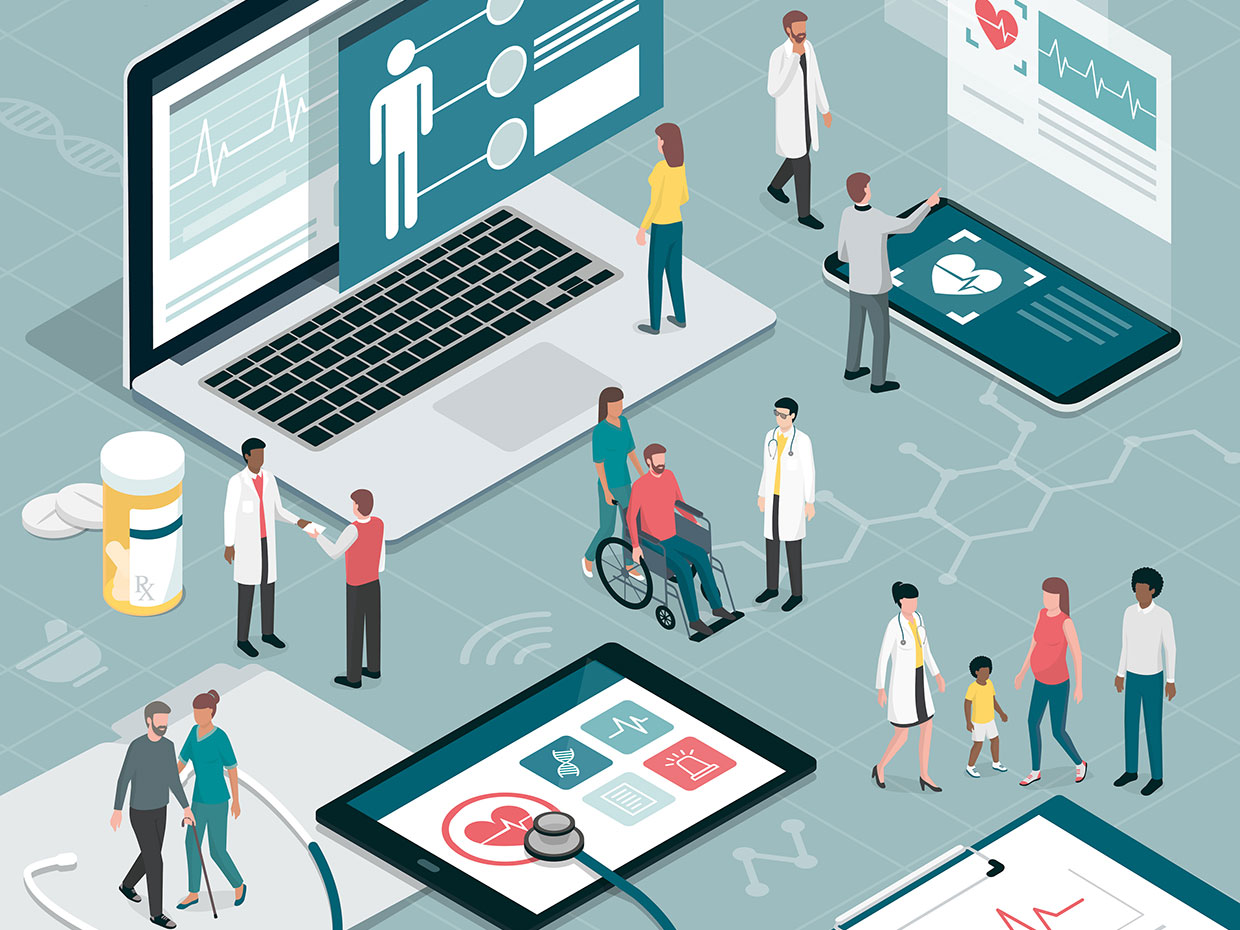Korea’s New 5G Futuristic Hospital

When Yonsei University Health System opens its newest hospital next year, in Yongin, about 25 miles outside of Seoul, it will be decked out with some of tech’s hottest gadgets.
Very sick patients in isolation rooms can visit with holograms of their loved ones. Visitors will find their way around the hospital using an augmented reality (AR)-based indoor navigation system. Authorized medical workers will use facial recognition to enter secure areas. Patients can call a nurse and control their bed, lights, and TV with an Alexa-style voice assistant.
That’s the vision, at least. Yonsei and Korean telecommunications company SK Telecom, last week jointly announced that they had signed a memorandum of understanding to build technology for the futuristic hospital, scheduled to open in February 2020. SK Telecom will support the technology with a 5G network, and is considering securing it with quantum cryptography, according to the announcement.
“This is really exciting,” says Peachy Hain, executive director of nursing at Cedars-Sinai hospital in Los Angeles, who is not involved in the Korean hospital project. “All of these technologies should be really important goals for hospitals.” But she cautions: “A patient’s room is small. As we add technology, we need to think about where it’s going to go” and how software might be integrated to reduce hardware in the room.
Parts of the technologies envisioned by the Yonsei group have been tested in other hospitals globally. A few years ago, hospitals in Dublin and London introduced a nurse hologram that would remind visitors to wash their hands. A hospital in China uses facial recognition to speed medical bill payments. Gatwick Airport in the UK offers an AR wayfinder app.
Voice-enabled technologies are making their way into health care too. Amazon in April announced that Alexa now has the ability to transmit patient information in a way that is compliant with the U.S. health privacy law HIPAA. (This is fortunate timing, considering that at least 37 startup companies are building products at the intersection of voice and health care.)
At least six groups, including Boston’s Children’s Hospital, Cigna Health, Express Scripts, and Livongo say they are using the new HIPAA-compliant Alexa skills. The new voice functions allow patients to schedule appointments, find urgent care centers, receive updates from their care providers, access their latest blood sugar reading, and check the status of their prescriptions.
A pilot program underway at Cedars-Sinai, which Hain oversees, tests an Alexa-powered program called Aiva in its hospital rooms to provide patients with entertainment and connect them with nurses and the outside world.
But what Yonsei University Health System is proposing to do in Korea is bring a wide range of these AI-based technologies together into one hospital. The group aims to “enhance the convenience of both patients and medical staff, and strengthen both information and physical security of the hospital,” according to its announcement.
The goal sounds feasible, Hain says. But as hospitals continually add non-essential technology, engineers must find a way to integrate it in a way that’s convenient, she says. For example, could the hologram visitor come from the same device that provides interpretation services for non-native speakers, and remote surveillance for patients who need to be watched constantly? Could that same software also log the information from the interpreter or surveillance directly into the patient’s electronic medical records, reducing work for the nurses?
“We’re hoping that in the future a smart hospital room will have the least equipment possible,” Hain says.
Fonte:https://spectrum.ieee.org/the-human-os/biomedical/devices/koreas-new-futuristic-hospital
